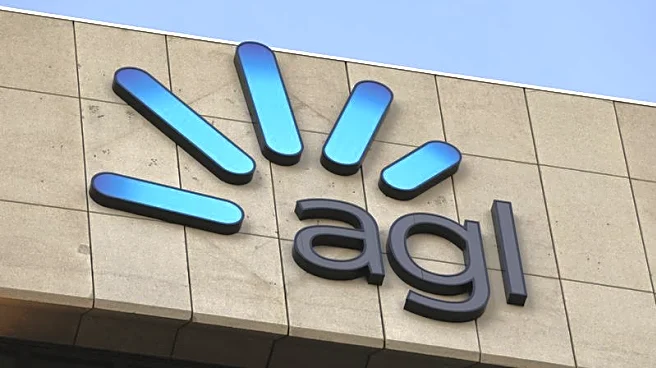Rapid Read • 8 min read
Clal Insurance Enterprises Holdings Ltd has decreased its holdings in Taiwan Semiconductor Manufacturing Company Ltd. (NYSE:TSM) by 32.4% during the first quarter, as reported in its latest 13F filing with the Securities and Exchange Commission. The company sold 200,000 shares, reducing its stake to 418,000 shares valued at $69,388,000. This move comes as Taiwan Semiconductor's stock has been experiencing a significant boost, partly due to the AI data center boom. Other institutional investors have also adjusted their positions in the company, with some increasing their stakes. For instance, DekaBank Deutsche Girozentrale increased its holdings by 0.9%, and Alpha Cubed Investments LLC raised its position by 283.7%. The stock has been the subject of several positive analyst reports, with firms like Needham & Company LLC and Barclays issuing 'buy' and 'overweight' ratings, respectively.
AD
The reduction in holdings by Clal Insurance highlights the dynamic nature of institutional investment strategies in the semiconductor sector, particularly as Taiwan Semiconductor continues to benefit from the growing demand for AI-related technologies. The company's strong financial performance, with a reported 44.4% increase in revenue year-over-year, underscores its pivotal role in the global semiconductor market. This sector is crucial for technological advancements and economic growth, impacting various industries reliant on semiconductor technology. The positive analyst ratings and increased interest from other institutional investors suggest confidence in Taiwan Semiconductor's future prospects, despite geopolitical pressures that could affect the industry.
As Taiwan Semiconductor continues to capitalize on the AI data center boom, it is likely to maintain its strong market position. The company's future performance will be closely watched by investors, especially in light of potential geopolitical tensions that could impact supply chains and market dynamics. Analysts and investors will be monitoring the company's earnings reports and strategic decisions to assess its ability to sustain growth and navigate external challenges. The semiconductor industry as a whole may see further investment shifts as stakeholders respond to evolving market conditions.
The semiconductor industry's growth is not only a technological and economic story but also a geopolitical one. As companies like Taiwan Semiconductor expand their influence, they become central to discussions about national security and technological sovereignty. The industry's reliance on global supply chains makes it vulnerable to international tensions, which could lead to shifts in manufacturing strategies and policy decisions. This underscores the importance of strategic planning and risk management for companies operating in this space.
AD
More Stories You Might Enjoy












